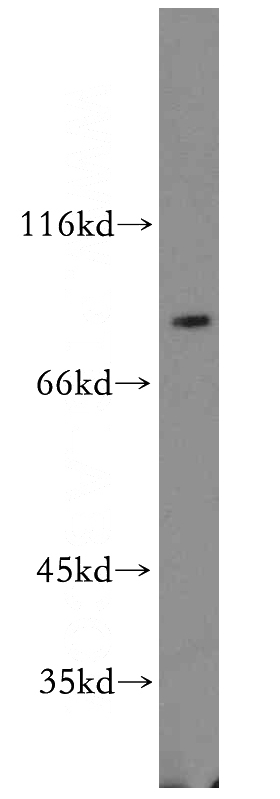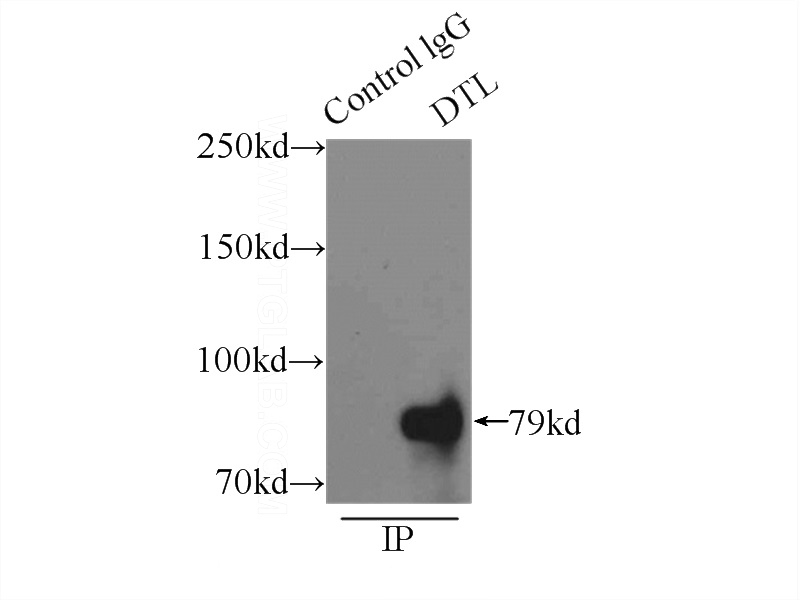-
Product Name
DTL antibody
- Documents
-
Description
DTL Rabbit Polyclonal antibody. Positive WB detected in HeLa cells, L02 cells, MCF7 cells. Positive IP detected in mouse testis tissue. Observed molecular weight by Western-blot: 79kd
-
Tested applications
ELISA, WB, IP
-
Species reactivity
Human,Mouse,Rat; other species not tested.
-
Alternative names
CDT2 antibody; CDW1 antibody; DCAF2 antibody; Denticleless protein homolog antibody; DTL antibody; L2DTL antibody; RAMP antibody
-
Isotype
Rabbit IgG
-
Preparation
This antibody was obtained by immunization of DTL recombinant protein (Accession Number: NM_016448). Purification method: Antigen affinity purified.
-
Clonality
Polyclonal
-
Formulation
PBS with 0.02% sodium azide and 50% glycerol pH 7.3.
-
Storage instructions
Store at -20℃. DO NOT ALIQUOT
-
Applications
Recommended Dilution:
WB: 1:200-1:1000
IP: 1:200-1:2000
-
Validations

HeLa cells were subjected to SDS PAGE followed by western blot with Catalog No:110032(DTL antibody) at dilution of 1:200

IP Result of anti-DTL (IP:Catalog No:110032, 3ug; Detection:Catalog No:110032 1:500) with mouse testis tissue lysate 8000ug.
-
Background
CDT2, also named as L2DTL or RAMP, is one of the substrate receptors of the Cullin Ring Ubiquitin Ligase 4 that targets for ubiquitin mediated degradation a number of substrates, such as CDT1, p21 and CHK1, involved in the regulation of cell cycle and survival. CDT2 overexpression was reported in breast (PMID: 18542055), gastric (PMID: 19672268) and ovarian carcinomas (PMID: 23995842) and rhabdomyosarcomas (PMID: 19235922) and associated with the aggressiveness of hepatocellular carcinomas (PMID: 17106265).
Related Products / Services
Please note: All products are "FOR RESEARCH USE ONLY AND ARE NOT INTENDED FOR DIAGNOSTIC OR THERAPEUTIC USE"
